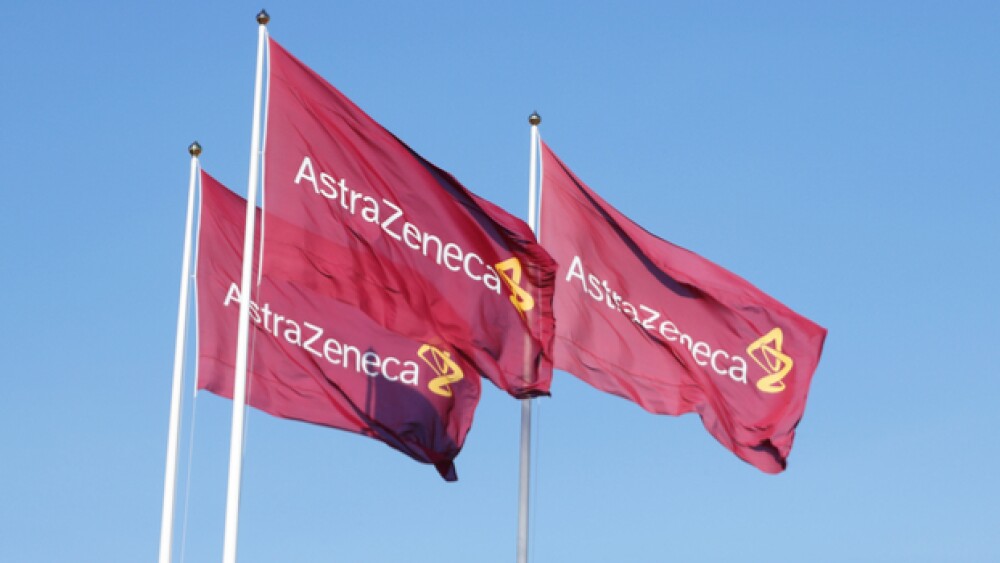UK-based AstraZeneca and the University of Oxford have partnered on the global development and distribution of Oxford’s COVID-19 vaccine, AZD1222.
Roland Magnusson / Shutterstock
UK-based AstraZeneca and the University of Oxford have partnered on the global development and distribution of Oxford’s COVID-19 vaccine, AZD1222. The company announced plans to manufacture two billion doses of the vaccine, with 400 million allotted for the U.S. and UK and one billion for low- and middle-income countries.
AstraZeneca entered deals with the Coalition for Epidemic Preparedness Innovations (CEPI), Gavi, the Vaccine Alliance, and the Serum Institute of India (SII). The agreement with CEPI and Gavi was for $750 million, which will support manufacturing and distribution of 300 million doses, with delivery scheduled by the end of this year. The deal with SII is to supply one billion doses for low and middle-income countries, agreeing to manufacture 400 million before the end of this year.
Yesterday, at a summit hosted by British Prime Minister Boris Johnson, countries pledged to raise at least $8.8 billion to fund Gavi, which is supported by the Bill & Melinda Gates Foundation, the World Health Organization (WHO), the World Bank and UNICEF. At the time, Gavi also announced it was launching an Advance Market Commitment (AMC) for future COVID-19 vaccines to ensure that new vaccines are allocated to poorer countries.
AstraZeneca indicated it is building several supply chains in parallel around the world to support global access—at no profit—during the pandemic. So far it has secured manufacturing capacity for two billion doses of the vaccine.
“We are working tirelessly to honor our commitment to ensure broad and equitable access to Oxford’s vaccine across the globe and at no profit,” said Pascal Soriot, AstraZeneca’s chief executive officer. “Today marks an important step in helping us supply hundreds of millions of people around the world, including to those in countries with the lowest means. I am deeply grateful for everyone’s commitment to this cause and for their work in bringing this together in such a short time.”
The University of Oxford group, with the university’s Jenner Institute and Oxford Vaccine Group, are generally viewed to be furthest along in a vaccine against COVID-19, with the U.S.’s Moderna in partnership with the U.S. National Institute of Allergy and Infectious Diseases (NIAID) at a very similar spot in the timeline.
The Jenner Institute tested a vaccine for an earlier coronavirus last year, showing it was not harmful to humans. The vaccine has been tested in six rhesus macaque monkeys at the National Institutes of Health’s Rocky Mountain Laboratory in Montana, that were then exposed to large volumes of the virus causing COVID-19. More than 28 days later, all six were still healthy.
The distribution of the vaccine is dependent on clinical trials taking place by August, according to Soriot. The company, as is common during this pandemic by other companies working on a vaccine, is to run clinical trials and ramp up manufacturing at the same time. This places a big financial risk on the companies, because the vaccines may not turn out to be effective or safe.
“AstraZeneca and our other industry partners have a critical role to play in rapidly developing safe and effective vaccines and manufacturing the billions of doses needed to put a permanent end to the COVID-19 pandemic,” said Richard Hatchett, chief executive officer of CEPI. “AstraZeneca is admirably committed to equitable global access for this vaccine, and this partnership demonstrates how the COVID-19 Vaccine Global Access Facility will bring the private, public and third sectors together to make COVID-19 vaccines available to those who need them most, for the benefit of all.”
Oxford University recently launched a Phase II/III clinical trial of the vaccine in about 10,000 adult volunteers. Other trials are expected to begin in other countries.
AstraZeneca notes that its “comprehensive pandemic response also includes rapid mobilization of AstraZeneca’s global research efforts to discover novel coronavirus-neutralizing antibodies to prevent and treat progression of the COVID-19 disease, with the aim of reaching clinical trials in the next three to five months.”
Additionally, it has begun testing new and existing drugs against COVID-19, including the CALAVI and ACCORD trials ongoing for Calquence (acalabrutinib) and the DARE-19 trial for Farxiga (dapagliflozin).
In a conference call, Soriot said, “We are very focused and very committed. When you have something like this with this sort of pandemic and the tremendous impact it has on people, the economy, et cetera, you can’t second-guess what’s going to happen. You can’t spend your time figuring out, is it going to work or not going to work, you just have to commit. … We come in and make a bet on some of these things.”





